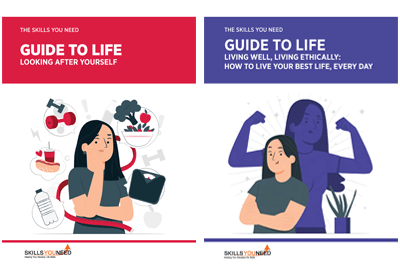What Skills Do You Need
Before Going to University?
See also: Top Tips for Studying
Expanding your social horizons, gathering knowledge from a wide variety of domains, and enjoying new experiences are just some of the reasons why you should go to university. If you have a particular career in mind, you’re in luck because many degrees offer practical elements to help you develop skills in a real working environment.
Universities should be able to do more face-to-face teaching this year, which means that most seminars, small group programs, and lab work will be taught in person rather than virtually.
Starting university can be like starting a new life in the sense that you embark on a new journey, one of self-reliance and self-discovery. There’s a bunch of new academic and social skills that you need to acquire in preparation. You can easily learn a variety of skills to make sure that you have everything in order before you go.
It may feel that university is a long way away, but it’ll be here before you know it.
Let’s take a look at the essential skills needed to thrive as a university student.

Budgeting Wisely
When you have a budget, you can easily account for your money and even build a savings account. Make sure you control your spending and avoid the temptations and expenses typically associated with university years, such as a night on the town, a trip to the mall, and so on. Overspending your budget can cause stress that affects your sleep, self-esteem, and energy levels. A budget is a responsible step into adulthood. Draw up a plan for the full 4-years term. Figure out how much money you’ll get, need and spend during your studies.
Have a chat with your parents about what expectations they have regarding spending levels, your ability to earn and spend money, or your grade point average. You should also be aware that there are many discounts available for students. It’s recommended to have your school- or college-issued student ID card with you at all time to prove that you’re actually a student if a discount is offered. As a student, you need to develop the following skills:
- Projecting future expenses accurately
- Ensuring cash is available for emergencies
- Making changes when your plan doesn’t work
It may feel hard to look beyond the next exam, but keep in mind that every financial decision you make affects your future.
Finding Accommodation
Settling in at university matters for your overall experience Decide if you want to live in halls, private accommodation, and or at home. Weight up the pros and cons of every option and see if it meets your budget and lifestyle. Going for a room in a privately-rented house or flat can be good for students. Just think about it. You have your own room and shared areas like the kitchen and bathroom. You can decide exactly where you want to live and with whom.
All experiences are learning experiences, which can only help in the long run. Living with a roommate teaches you a lot of things. Here are a few examples:
- Patience
- Importance of me time
- Compromise
- Boundaries
- How to share
Before you sign anything, make sure to get a good understanding of the rental agreement. Most important, read the fine print. Don’t rush into accepting the terms and conditions because they may come back to haunt you.
Time Management
High school can be a busy time, but university is even busier. This is precisely why you have to manage your time effectively. You need to plan and exercise conscious control of the time spent on certain activities. With so many demands, it might be hard to manage your schedule to avoid becoming stressed. Break up your day by grabbing a coffee or eating some fruit. Let’s not even talk about drinking lots and lots of water. You can keep a calendar with all your appointments on your phone so that you always have it at hand.
While you might be yearning for a simple era when time seemed to move more slowly, today’s society requires you to have skills in efficiency and productivity. Once you’ve set your priorities in order, have a plan for getting them done. Unless you’re naturally organized, you may want to record it all. You’ll be amazed to discover how productive you can be when you train yourself to capture everything. Find healthy ways to manage stress, as no one performs great under pressure.
Cooking
Knowing how to cook is an essential life skill for university. If you’re not particularly good at it, don’t waste anymore time and learn a few simple recipes. There’s no reason to waste money at expensive restaurants and takeaways when you can make your own delicious meals. Becoming an expert in the kitchen doesn’t happen overnight, so you must be patient. A list of basic culinary skills includes:
- Checking for freshness in food ingredients
- Peeling vegetables, kneading dough, separating eggs efficiently
- Planning menus to maintain a reasonable kitchen budget
Learn a few basic recipes before you go to university. For instance, you can learn how to make spaghetti, or chicken curry. Once you get started, you can begin experimenting with different ingredients and flavor combinations. Invest in a good saucepan and frying pan. Also, you should stock up on a few essential kitchen utensils like a knife, a metal spatula, tongs, and a Dutch oven.
Conversational Skills
Conversation is supposed to be fun because it involves personal interaction about something of interest. Yet, far too many people worry excessively about conversing, as it can drain them mentally. What about you? You’re going to meet lots of new people at university, many of whom are leaders in their field. Being able to reach out to others makes you be listened to and helps develop strong relationships. So, master the art of small talk. Not only should you have approachable body language, but also take initiative and be the first person to say hello.
Here are some important conversational skills you should know:
- Active listening
- Friendliness
- Empathy
- Respect
- Sharing feedback
Don’t be scared about talking to senior academics. Tell them about the work you’re interested in, but avoid talking about the problems you’ve been having. It’s not nearly as intimidating as you think it is.
Further Reading from Skills You Need
The Skills You Need Guide to Life
This two-part guide is an easy-to-read summary of the essential skills you need for a healthy mind and body.
The first eBook, Looking After Yourself, covers some of our most popular content and will help you to live a happier, healthier and more productive life.
The second eBook, Living Well, Living Ethically, considers how you can live your best life all the time. It helps you to answer the question: how can I avoid having too many regrets about my life?
About the Author
Trevor Davis has a BA in Social Sciences and currently works as a corporate coach for a tech company. As a blogging aficionado, Trevor is passionate about sharing educational resources and helping professionals hone skills such as leadership, interpersonal communication, emotional intelligence, and problem solving.


